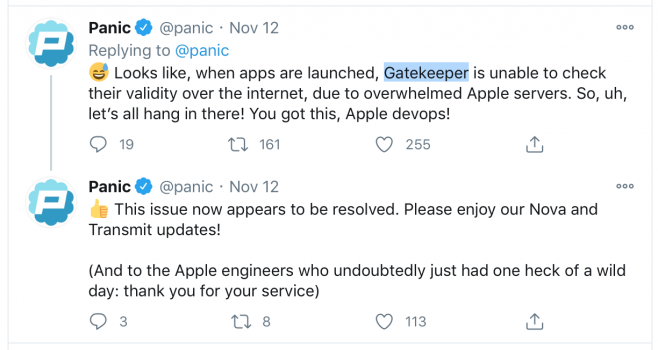I think that this is one of those cases where, if you have a bank account, use a credit card, browse the web or, heaven forfend, use a mobile phone then you have far more serious potential privacy breaches to worry about and should just stick your head back into the warm, comforting sand.
What is happening is that, when you open a "notarised" application (i.e. one that has been check for malware by Apple) by Apple) Gatekeeper sends a code identifying that certificate to an Apple server and receives a response as to whether that certificate is still valid (the "good" reason for which would be that the app had been found to contain malware).
As with any internet transaction* (unless you're paranoid and do everything through a VPN or similar) that means that the Apple server receives your IP address (which is potentially traceable). They also get the code identifying the app you are using. The 9to5 article then speculates that Apple could log all that info to a big database and do scary things with it. Which is true - but they don't have to store or process that info (and if they do then they're in danger of getting roasted by the EU and other non-US bits of the world where that would definitely need informed consent).
It's also true that your ISP or any black hat snooping on your connection could potentially intercept that connection. Just bear in mind that the same is true of every single website that you visit (even with HTTPS your ISP knows the IP address of you and the web server you are calling) - along with most "subscription" software (which will periodically check to see if you've paid) or many other copy-protection schemes.
...also, if Apple are using the basic OCSP protocol then an evesdropper would also know which applications you were running - but it would be very easy for Apple to encrypt that ID (HTTPS would be over-kill). Unfortunately, it is clear from the sensationalist, click-baity nature of the article that the author isn't going to look too closely at anything that doesn't fit the story.
This isn't a non-issue: if nothing else, my Mac ground to a halt, with no explanation, when Apple had their server problems and I wasted an hour or so doing disc checks and scanning for malware. (That's a 2017 iMac running Mojave - the only Apple Silicon connection is that some of the tools used to block Gatekeeper won't work on Big Sur).
Apple need to release a statement, confirm whether the application IDs are sent unencrypted and confirm that they're not permanently logging these transactions. They also need to fix the timeout issues so that the next time their server goes slow it doesn't gum up everybody's Mac. However, its worth getting it into perspective - and if you haven't previously been running Little Snitch or similar, nothing much has changed. Apple have already said that you'll be able to run MacOS on ASi with the new kernel protections turned off - but the security risks of that probably outweigh the risk of using Gatekeeper (which is, above all else, a guard against malware).
If you're that seriously worried about privacy, you should probably be using a privacy-hardened Linux like Tails - not even one of the mainstream distros - rather than anything from Apple, Google or Microsoft.
(* If you run your own website with Apache etc. then by default it will log the IP address of every request it receives - when GDPR came in I had to go through every website I operate and explicitly turn that off).


